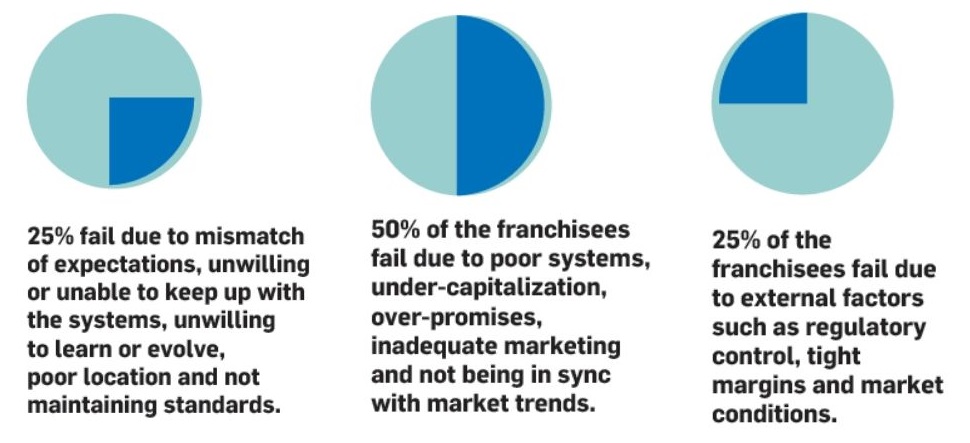Reasons For Franchisor-Franchisee Conflicts In India It has been found that structural fluidity and contractual rigidity prove to be most effective in avoiding or resolving conflicts in franchising in India. Read on...
By Ashita Marya
Opinions expressed by Entrepreneur contributors are their own.
You're reading Entrepreneur India, an international franchise of Entrepreneur Media.

Franchise businesses are given standardized systems and tools to adhere to, and as a result, have less wiggle room when it comes to being able to implement creative or out-of-the-box strategies and tactics. That is one of the major reasons of conflict between Franchisors and Franchisees. Performance and support in the system is always a constant point of dispute.
Mismatched Expectations
The biggest conflict between franchisor and franchisee is mismatch between expectations and obligations at both ends. New franchisees have very high expectations of ROI in initial years that is unreasonable.
Not Maintaining Operating Standards
Franchisors in India feel that franchisees don't adhere to Standard Operating Procedures (SOPs) and leads to inconsistency in all the operations.
Inadequate Marketing
Franchisees often complain that Franchisors don't do adequate marketing for building the brand while franchisors often retort that franchisees are not doing enough local area marketing in their territory. As a whole it becomes a big reason for conflict.
Market Conditions
A number of market environment factors such as dissatisfied customers, raw material vendors, as well as other suppliers, less demand for products or services and recession in the industry are some of the factors that contribute to this conflict.

Failure to Follow the System
Many times, franchisees buck the system and try to do things on their own. Though franchisees can also have excellent ideas to improve the whole system, yet if some of their ideas are completely off-track with the brand values then the franchisors tend to get aggressive with the franchisee.
Failure to Evolve
In the fast-changing world, if the franchisee is too complacent with his business to adapt to changes, he will ultimately become irrelevant and franchisor's duty is to point that out repeatedly to his partners.
Regulatory Control
In the absence or frequently changing regulatory control by the government, businesses can get wiped out overnight. Many sectors of the franchise world have long complained about government regulations and their restrictive nature. However, the unique problem of the Indian franchise system is that even if everything is in place, you may still have to hang up just because you are on the wrong side of the government policy.
Tight Margins
Many franchise owners experience tightening profit margins due to external or internal problems. External problems often include a faltering economy, a natural disaster that may increase the cost of raw materials, and a shortage of raw materials while internal problems arise when a company mismanages its costs or employees. For instance, lack of employee training leads to lower employee performance, which increases productivity costs.
Over-Promising
When it comes to franchising the last thing you ever want to be faced with is the claim by a franchisee that you "over-promised and under-delivered." So, it's a franchisor's responsibility to be realistic while making commitments to franchise partners.
KEY TAKEAWAY
TOP 5 CHALLENGES FOR FRANCHISEES
Return on Investment: 30%
Retention of Staff : 20%
Location & Rentals : 15%
Support by Franchisor: 20%
Lack of Creativity: 15%
TOP 5 CHALLENGES OF FRANCHISORS
Under-Performance of Franchisees: 33%
Lack of Adherence to SOPs: 28%
Under-reporting the Business: 20%
Lack of Initiatives to reach out to Local Customers: 12%
Talent Stickiness: 7%












